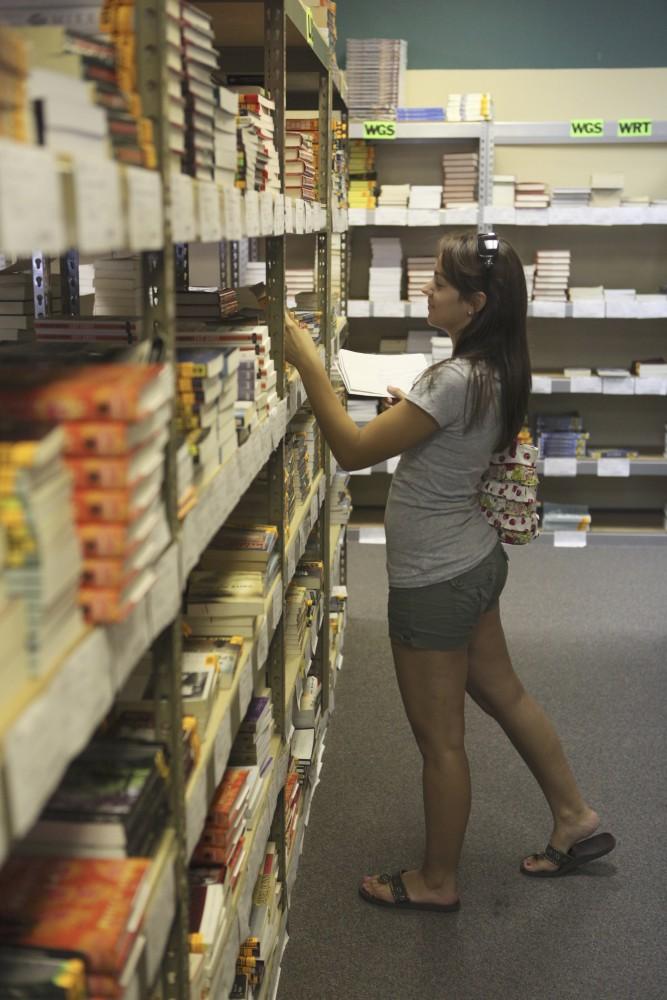‘Higher Education Opportunity Act’ aims at lowering textbook prices

Transfer Student Carmen Kase gets prepared for the start of the school year.
Aug 30, 2010
The contents of an average college student’s backpack are teaching hard lessons in economics, with a U.S. Government Accountability Office report showing textbook prices have tripled between 1986 and 2004.
The federal government, taking notice of high textbook prices, has taken steps to reduce the expense of textbooks by passing a law in 2008 called the Higher Education Opportunity Act.
A provision of this law will require textbook publishers to reveal, in advance, the price, description of content changes, availability of the book in other formats, copyright dates of the last three editions and prices of bundled and unbundled books. The hope is that providing more information to students and professors will lead to lower textbook prices.
Laudo Ogura, assistant professor of economics at Grand Valley State University, said one of the reasons textbook prices have become so high is because instructors and students do not have perfect information about differences in textbook price and quality.
“Instructors don’t have much incentive to look at prices, since they don’t pay,” Ogura said. “Some of them might start looking at the prices now that they will be disclosed, and avoid a too expensive book, although most books of the same quality have more or less the same price, so it is not likely there will be a large reduction in prices, though a 10-20 percent reduction is possible in the long term.”
Ogura added, however, that the price reduction of textbooks will more likely be seen mostly in general education courses because there are already more textbook options available within those areas.
Jerrod Nickels, manager of the University Bookstore in Allendale, said the law has had no impact on UBS textbook sales to date and that he does not anticipate it will in the future either.
Nickels explained that the textbook information the law required be made public has already been accessible for students through the UBS site, but students can now access the same information through the Banner registration site as well.
“UBS continues to be highly competitive in the textbook market based on a pricing structure which is student-focused and an excellent used book program,” he said. “Nearly 50 percent of the books that we sell are used books – the average college store sells about 27 percent used books. We do not feel that the law will have any impact on our ability to be competitive.”
Other bookstores agree. Matt, a manager at Brian’s Books who wished not to reveal his last name, said things hav not changed much for the used textbook store at the southwestern corner of GVSU’s Allendale Campus.
“Nothing seems to be all that different yet,” he said. “Everything seems to be flowing like normal, but its hard to tell at this point.”






















